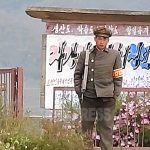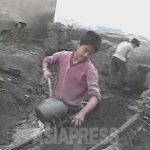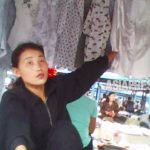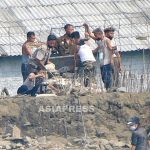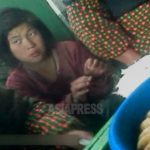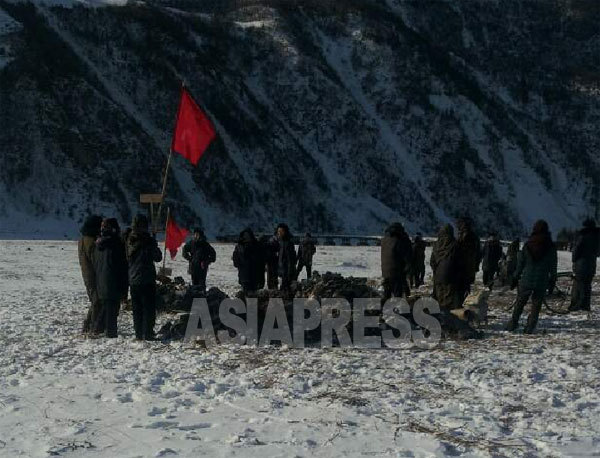
2019/Jan/21
◆ Kicking off the year with a "compost collection battle"
In North Korea, the annual "compost collection battle" has begun. To prepare for the rice-planting season in April, North Koreans across the entire country are called upon to collect and supply compost of their own making. According to an ASIAPRESS reporting partner in North Hamkyung province, orders for this national collection effort came from the top, with “Kim Jong-un, following his New Year address, announcing that participation in a ‘compost collection battle’ would be the citizens’ first task of the new year.” (Kang Ji-won)
In North Korea, collective farming is still centered around the operation of cooperative farms and the production of compost supplied to the farms is no less collective in nature. Beginning early each year, North Korea’s “compost collection” gets underway. Indeed, it has become quite a tradition. However, as a tradition, it is unfortunately founded upon an outdated system of farming, a lack of proper chemical fertilizers, the reduction of import cost for the fertilizer.
The reporting partner explained, “The government demands each household to provide 1 ton of human waste, with 500kg of waste expected from elderly households. Meanwhile, the inminban (local political unit) is responsible for collecting and transporting waste from the public toilets. However, the rich just pay others to produce and collect the waste expected from their own household. The households who can’t join in the work should pay for the fuel. A cow-drawn cart of human waste costs about 20 Chinese yuan (about 3,300 South Korean won).”
Although the rich and powerful can easily escape this unpleasant duty, “the authorities say that anyone who eats, whether they be ordinary citizens or high officials, should be responsible for collecting their own waste each morning.”
※North Korea mobilizes its residents to collect their own waste in January and February each year to be later used as compost. Collections also take place at work and at schools.
※ASIAPRESS contacts its partners in North Korea through mobile phones smuggled in from China.
- [Video Report] Visiting an abandoned factory district: Sunchon Vinylon fiber factories left in ruins
- Love Thy Neighbor: N.Korean Public Confused as Regime Prohibits Criticism of China
- With time running out for the aging families of Japanese abductees, the Abe administration must lay out a roadmap for settlement talks with North Korea (ISHIMARU Jiro)
